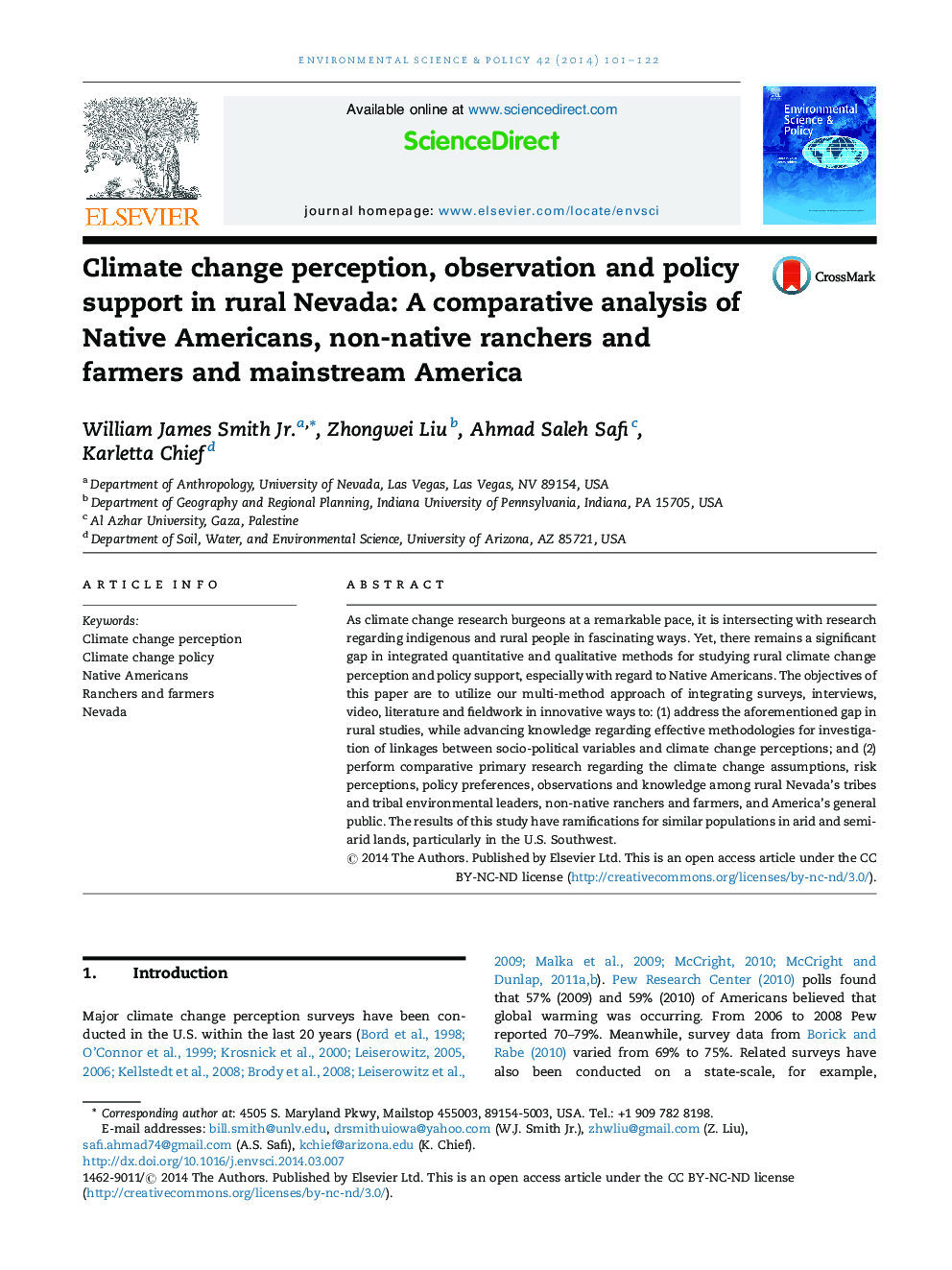| Article ID | Journal | Published Year | Pages | File Type |
|---|---|---|---|---|
| 7467689 | Environmental Science & Policy | 2014 | 22 Pages |
Abstract
As climate change research burgeons at a remarkable pace, it is intersecting with research regarding indigenous and rural people in fascinating ways. Yet, there remains a significant gap in integrated quantitative and qualitative methods for studying rural climate change perception and policy support, especially with regard to Native Americans. The objectives of this paper are to utilize our multi-method approach of integrating surveys, interviews, video, literature and fieldwork in innovative ways to: (1) address the aforementioned gap in rural studies, while advancing knowledge regarding effective methodologies for investigation of linkages between socio-political variables and climate change perceptions; and (2) perform comparative primary research regarding the climate change assumptions, risk perceptions, policy preferences, observations and knowledge among rural Nevada's tribes and tribal environmental leaders, non-native ranchers and farmers, and America's general public. The results of this study have ramifications for similar populations in arid and semi-arid lands, particularly in the U.S. Southwest.
Related Topics
Physical Sciences and Engineering
Energy
Renewable Energy, Sustainability and the Environment
Authors
William James Jr., Zhongwei Liu, Ahmad Saleh Safi, Karletta Chief,
